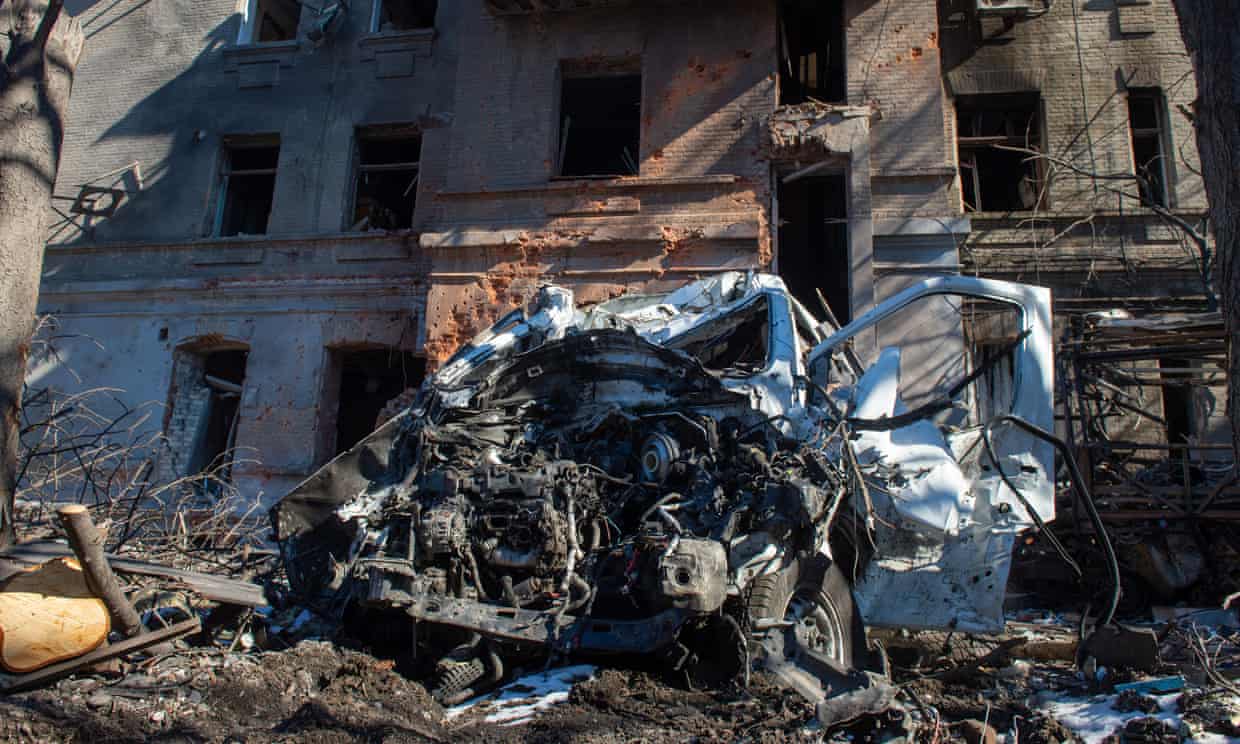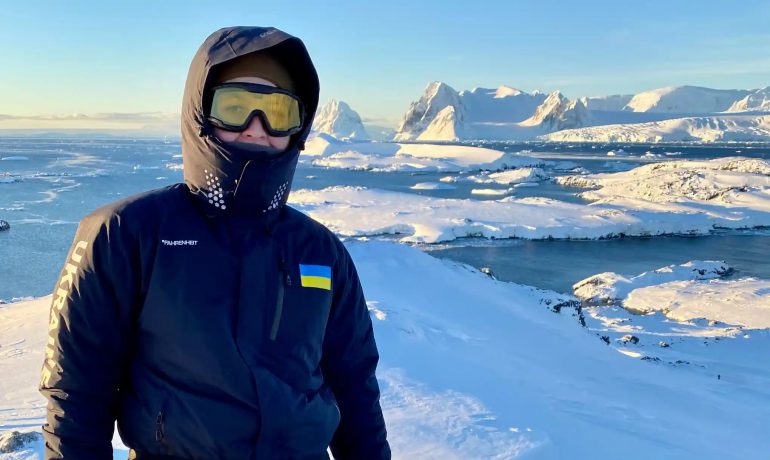Yan Bakhmat’s assignment to Ukraine’s only research base in Antarctica is almost over, but the home he left has been destroyed.
Yan Bakhmat was 15,500km miles away from his home in the eastern Ukrainian city of Kharkiv when the Russian invasion began. Working as a geophysicist at the Vernadsky Station, Ukraine’s only research base in Antarctica, he has watched the horrors of the war unfold from an agonising distance.
Now his year-long assignment to the remote outpost is nearing its conclusion and he faces the bitter task of returning to Europe and a country that has changed forever.
Kharkiv, Ukraine’s second-largest city, has been wrecked by Russian airstrikes. Ukrainian forces are still holding the city against the Russian advance, but it has suffered from Russian rockets and shelling, with dozens of civilians killed and injured and many buildings destroyed.

Bakhmat’s mother and girlfriend have left for Poland while his father and grandmother fled to western Ukraine. Professors at the institute where he worked before taking up his post in Antarctica have joined the territorial defence units.
From left to right: Janez Janša, Mateusz Morawiecki; Poland’s deputy PM, Jarosław Kaczyński, and Petr Fiala study a map of Ukraine in a wood-panelled room in an undisclosed location in Kyiv.
‘Europe stands with you’: EU leaders vow support for Ukraine during Kyiv visit
Read more
“It’s impossible to describe, you can only live through it when you are thousands of kilometres away from everything and everyone you know and love, when you can’t influence anything,” Bakhmat said in a phone call with the Guardian.
“You just realise that you have nowhere to return, and all you can do is turn yourself to a new reality. Your life has divided into ‘before’ and ‘after’.”
He added that he could not allow himself to panic or show weakness. “I understand how important my logistical, financial, and informational support will be.”
Bakhmat is one of 12 residents at the Vernadsky station, a former British research base transferred to Ukraine in 1996. Every year, a group of Ukrainian scientists and support staff arrives to conduct research at the base, which has been crucial for the study of climate change and its impact on plants and animals. As a geophysicist, Bakhmat’s job is to measure the Earth’s magnetic field.
On 2 March, the team at the Vernadsky station recorded an address to their fellow citizens.
“Our hearts are filled with pain from what’s happening in our homeland,” they said in the video. “Unfortunately, we can’t join the soldiers, the territorial defence and volunteers now but we are doing everything we can to help our country.”
Bakhmat and his colleagues have about three weeks left at the base. They will hand over the shift to the new group of researchers who have left for Antarctica via Chile despite the war.
Bakhmat plans to fly to Poland to reunite with his family. But he is not sure what his future will hold after that. He says, depending on the situation, he will either join the defence forces in Ukraine, or stay in Poland and continue his scientific work.
“I have an opportunity to continue the ongoing projects so that they are not completely neglected. Otherwise, it will be hard to renew them,” he said.
Until the war began, Bakhmat would post videos detailing his life on the research station on TikTok to his more than 75,000 followers. He shared videos of stunning glaciers of the Southern Ocean, penguins, and life on the base. Many of his subscribers were Russians. Kharkiv, located 40km away from the Russian border, has long been a predominantly Russian-speaking city and had cultural ties to its neighbouring country.
After the Russian airstrikes began pounding Kharkiv, Bakhmat recorded a video trying to tell his Russian audience the truth.
“I remember that day. My mum and girlfriend had left, but my father and grandmother stayed behind. My father sent me a message to say goodbye,” he recalled. “In distress, I filmed a video saying directly: ‘My city is being bombed.”
His message wasn’t received well. He was attacked in comments and eventually, he says his video was blocked.
“I used to think Kremlin propaganda had its audience, somewhere remote. Now I see that the whole country is ignorant, with some exceptions. It is a country that lives in a parallel reality, where black is white, and white is black.”


